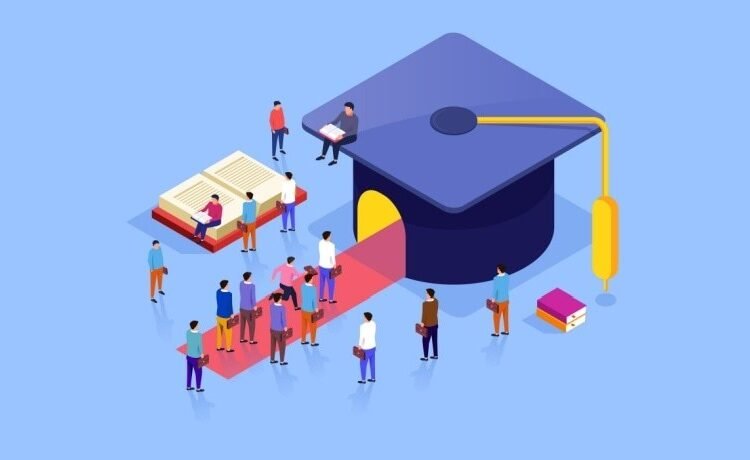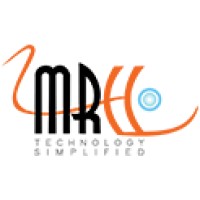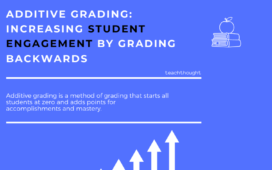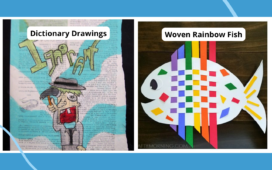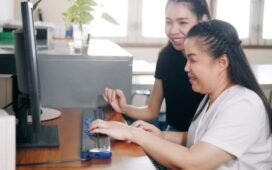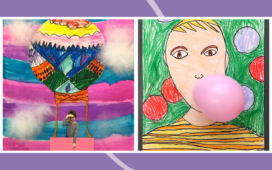How OER Is Transforming Higher Education In 2025
The future of education is rapidly evolving. In 2025, higher education is driven by innovative tools and strategies that make learning more accessible, engaging, and affordable. One of the most significant trends shaping this transformation is the rise of open educational resources (OER).
As the demand for affordable education solutions grows, OER is revolutionizing access to knowledge by providing students with free, high-quality educational materials worldwide. This shift is not just about saving costs; it’s about creating a culture of collaboration, inclusivity, and innovation in the academic ecosystem.
But what exactly is the role of OER in higher education today? How are these resources shaping the higher education trends of 2025? Let’s delve deeper into its pivotal impact on the future of learning.
What Are Open Educational Resources?
OER refers to freely accessible, openly licensed educational materials that can be used, modified, and distributed to enhance learning. These resources include textbooks, lecture notes, research papers, videos, and interactive modules. Key characteristics of OER include:
- Affordability
Eliminating the cost of traditional textbooks and resources. - Customizability
Allowing educators to tailor content to meet specific course objectives. - Accessibility
Providing global access to knowledge, irrespective of economic or geographic barriers.
In the context of higher education in 2025, these attributes make OER a cornerstone of modern academic practices.
How OER Is Shaping Higher Education In 2025?
Promoting Affordable Education Solutions
Traditional higher education often comes with exorbitant costs, especially for textbooks and proprietary learning tools. According to a report, the average student spends over $1,200 annually on textbooks alone. OER eliminates this burden, enabling universities to offer affordable education solutions without compromising quality. By 2025, we’re expecting a universal adoption of OER policies across higher education institutions that will make quality education accessible for all.
Enhancing Collaborative Learning Platforms
Collaborative education is the future, with a focus on community-driven learning [1]. OER supports this by fostering collaborative learning platforms where students, educators, and researchers work together to create and improve educational content. These platforms allow educators to share, review, and cocreate resources, bridging gaps between institutions. This collaborative approach ensures content remains dynamic, up-to-date, and reflective of diverse perspectives.
Driving Digital Transformation In Higher Education
As digitalization accelerates, the role of OER in technology-integrated learning cannot be overstated. Institutions are increasingly adopting cloud-based repositories to host OER, enabling seamless access and scalability. These technologies empower educators to integrate OER into Learning Management Systems (LMSs), adaptive learning tools, and mobile applications. This ensures that resources are accessible anytime, anywhere. By embedding OER into technology ecosystems, universities can reduce costs associated with proprietary content and foster a more agile, responsive learning environment tailored to the digital age.
Additionally, the synergy between OER and emerging technologies like Artificial Intelligence (AI) and data analytics is redefining personalized learning. AI-powered platforms leverage OER to recommend tailored learning paths, track student performance, and provide real-time feedback. This helps transform traditional classroom models into dynamic, interactive experiences.
Blockchain technology, a decentralized and secure digital ledger system, is also emerging as a game changer. It enables transparent and tamper-proof credentialing of OER-based certifications, ensuring the authenticity of academic achievements and enhancing trust in digital learning.
Advancing Equity And Inclusivity In Learning
OER advances equity and inclusivity in learning by providing free, accessible, and customizable educational materials to all students, regardless of their socioeconomic background. By eliminating the high costs of textbooks and proprietary content, OER ensures that learners from underprivileged communities have equal access to quality resources. Additionally, OER promotes inclusivity by offering adaptable content that can be localized and tailored to diverse cultural and linguistic needs. This flexibility allows educators to create accessible materials for students with disabilities, fostering a learning environment that supports everyone equally.
Encouraging Lifelong Learning
The rapid pace of technological change means upskilling and reskilling are more important than ever. OER is driving this shift by providing lifelong learners with free, easily accessible resources. Universities are increasingly integrating OER with micro-credential programs, offering students flexible and affordable learning pathways. For example, the Open University’s OpenLearn platform has seen an 400% surge in website visits since introducing OER-aligned professional development courses [2]. This surge is a clear indication of the growing demand for accessible, high-quality learning materials.
In addition to increased traffic, OpenLearn reported 1.8 million enrolments during its busiest months in 2020, with 1 in 4 visitors enrolling in courses. Notably, nearly 50% of those enrolled completed their courses, resulting in approximately 927,000 course completions. Furthermore, 76,000 digital badges were awarded, signifying learners’ achievements in specific subject areas and competencies. These badges serve as verifiable credentials, allowing learners to showcase their newly acquired skills to employers and institutions. This retention rate underscores the effectiveness of OER in fostering long-term engagement and supporting continuous professional development, making it an essential tool for promoting lifelong learning in higher education.
Challenges And Solutions In OER Adoption
Despite its potential, OER adoption is not without challenges. Addressing these is crucial for its long-term success in higher education:
1. Quality Assurance
- Challenge
Ensuring the quality and accuracy of OER materials. - Solution
Implement rigorous peer review processes and use established evaluation tools to maintain high standards.
2. Time And Effort
- Challenge
Time and effort required to adapt, adopt, and author OER. - Solution
Provide faculty with resources and support, such as Instructional Designers and librarians, to make the process manageable.
3. Digital Divide
- Challenge
Limited access to necessary technology and internet connectivity. - Solution
Invest in infrastructure and provide students with the required devices and internet access to bridge the digital divide.
4. Licensing And Copyright
- Challenge
Understanding and navigating licensing issues. - Solution
Educate faculty and students on Creative Commons licenses and provide clear guidelines on how to use and adapt OER.
5. Sustainability
- Challenge
Ensuring the long-term viability of OER initiatives. - Solution
Secure ongoing funding and institutional support to sustain OER programs.
6. Awareness And Perception
- Challenge
Lack of awareness and perception of OER as inferior to commercial materials. - Solution
Promote the benefits of OER through workshops, success stories, and showcasing high-quality OER examples.
As we embrace the future of education, the potential of OER to empower learners, educators, and institutions is boundless. By overcoming challenges and leveraging innovative technologies, OER is paving the way for a more equitable, accessible, and sustainable academic future. For educators, policymakers, and students alike, the message is clear: OER is not just a resource—it’s a revolution in how we teach, learn, and collaborate. The question is no longer whether it will shape higher education, but how we can harness its potential to build a better world.
References:
[1] Five Challenges for Collaborative Education and EdTech Solutions

